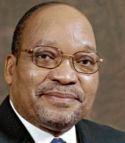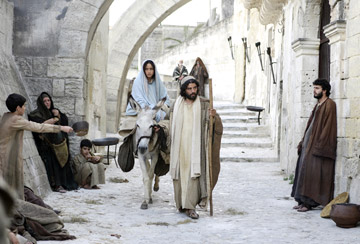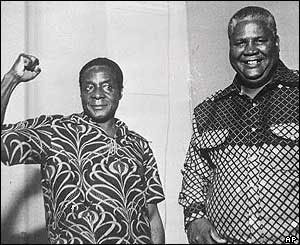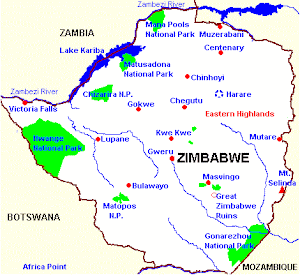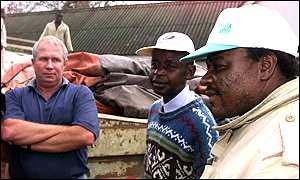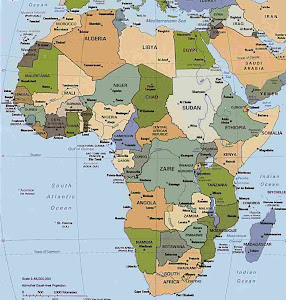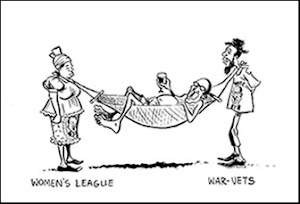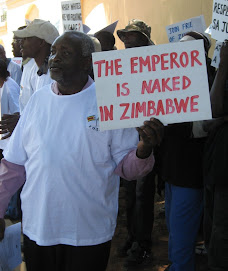
Open letter to Tsvangirai on deal with Zanu PF
By Farai Mtshaka.
Dear Sir,
The following is a quotation from the Newzimbabwe.com of the 11/08/2007:
“MDC officials have privately said they are not sure how ZANU PF hopes the opposition party can influence western nations to lift purportedly “targeted” sanctions against President Robert Mugabe and his officials” “We now wait to hear what exactly they want us to help with on the issue, since they put the item on the agenda.”
The MDC has repeatedly stated with indisputable justification that it does not have proprietary obligations over the sanctions issue, and I for one believe this to be true. It is therefore entirely up to Washington, the Brits, the Canadians, the Australians etc. to decide on the matter. That said, I also see an opportunity for the MDC to leverage its negotiating position.
As ZANU PF is so desperate to have the sanctions lifted, the principle of quid-pro-quo should apply here as well without exception, seeing as we do that they (ZANU PF) are concerned in the least about the well-being of Zimbabwean people. They seem obsessed with self-preservation and the love of power. Meanwhile, unmitigated state sponsored violence has become a permanent feature of ZANU PF’s survival strategy.
Political fundamentalism has driven Zimbabwe into the diabolical mess which the country is in today. Worse still, ZANU PF’s egalitarian obsessions about land redistribution and indigenisation have become a time wasting irrelevance as the economy continues to implode.
The MDC strategy on this issue ought to be framed around prudence and readiness to support genuine efforts to have the sanctions lifted, provided ZANU PF agrees to a robust economic recovery programme, underpinned by a sound regulatory framework and enabling economic policies. Nothing short of a bold approach would succeed in kick-starting the moribund economy. It is in my view simplistic and narrow-minded to see the sanctions issue in isolation.
In conjunction with the sanctions issue, we should be talking about how we recover the economy in the immediate term to long term. Zimbabwean people have suffered enough! Lifting sanctions alone will do little for the economy at this stage as long as the Government does not implement the rule of law, good governance and sound economic policies. Nonetheless, I would like to believe that these issues have already been covered in the discussions already undertaken by the two parties under the auspices of the SADC initiative.
With the approval of the 18th Amendment to the constitution already a done deal, there is slender possibility that ZANU PF will agree to further demands to hold the forthcoming elections under a constitution. As always, they will duck and dodge the issue in the full knowledge that it is not to their advantage to contest the forthcoming elections under a new democratic constitution. In all probability, they would prefer to buy time until the economy has begun to show signs of recovery and the public hostility towards the party has subdued to palatable levels.
On the other hand, it must be stated without equivocation and ambiguity that the MDC has dismally failed to hold the ZANU PF to account for mismanaging the economy. The generality of the Zimbabwean people, while remaining sceptical about the cause-and-effect relationship between the so called sanctions and the current economic meltdown, appear to have bought into the presumption that ZANU PF is not entirely to blame, but rather externally driven prescriptions for solving our problems, ostensibly supported by an unscrupulous opposition pushing the regime change agenda.
Naturally, the electorate expected a forthright attribution of responsibilities from the MDC as the principal opposition party. Consequently, the electoral prospects of the MDC have become just as fickle and tentative as those of the ruling ZANU PF. By all accounts, it is almost inconceivable for the MDC to wrestle power from ZANU PF at this stage through the ballot box. The splintering of the MDC into two formations has no doubt worsened the situation going into the elections.
Recent press reports about the internal power struggles in MDC have created the distinct impression of a party irretrievably mired in internecine squabbles of one kind or another. The party has failed to inspire lasting confidence among sceptical Zimbabweans.
If I were to hazard a guess about the outcome of the forthcoming elections, I would say that at best, the MDC could win any where between 84 and 94 seats in Parliament (40-45%) and perhaps much less in the Senate where the party could manage any where between 25 and 35 seats. The unpalatable reality is that the MDC leadership has failed to establish a confidence building platform that would place the party firmly on the trajectory to electoral victory.
There is urgent need to address some of the fundamental flaws in the party’s command structure. Transformative organisational changes within the party are needed as a matter of urgency.
Be that as it may, the MDC needs to be forward looking in its strategy. I am convinced beyond doubt that at this point, the MDC should begin to explore the prospect for a government of national unity with ZANU PF on two conditions; the first being that ZANU FP agrees to another amendment to the constitution creating the post of a Titular President and an Executive Prime minister, with the ostensible aim to get Mugabe out of the way. This should be a condition sine-qua-non for actively campaigning for the lifting of sanctions by the West.
Mugabe should be offered the post of Titular President in the Government of national unity if he is re-elected by popular mandate, while parliament would elect an executive Prime Minister. Under this scenario, ministerial posts would be shared proportionally between the MDC and ZANU PF. Most importantly, however, the government of national unity ought to have as its core objective the recovery of the economy, the implementation of which should be agreed by both parties before the elections. The MDC would insist on taking charge of key ministries such home affairs, justice and finance.
In order to enable full economic recovery and national healing, the duration of the government of national unity would be limited to the life of the next parliament. A government of national unity can undoubtedly enhance the strategic integrity of an economic recovery programme characterised by the absence of Mugabe from the day-to-day management of the state, thus facilitating the lifting of sanctions by the West. It should be understood by both the MDC and ZANU PF that sanctions will never be lifted while Mugabe remains at the helm of Government, whatever the circumstances.
The advantage of this approach (government of national unity), is essentially that it would allow Mugabe to side-step the succession issue within his party albeit temporarily, while enabling the MDC to play an important role in the governance of the country over the next five years, thereby raising its profile in and outside Zimbabwe.
To be sure, what I am proposing bears no resemblance whatsoever to what was offered to Joshua NKomo back in 1987. Under my proposal, neither the MDC nor ZANU PF would be obliged to subordinate their ideological affinity or political identity. The two parties would simply agree to co-habit over the next five years for the good of the nation. This is how Belgium has managed survive as a nation state for over last 150 years.
Once ZANU PF agrees to a comprehensive economic recovery programme and commits to bring about the rule of law and allow these platforms to be implemented by a government of national unity, I see no reason why the MDC would not agree to campaign for the lifting of sanctions after next year’s elections.



